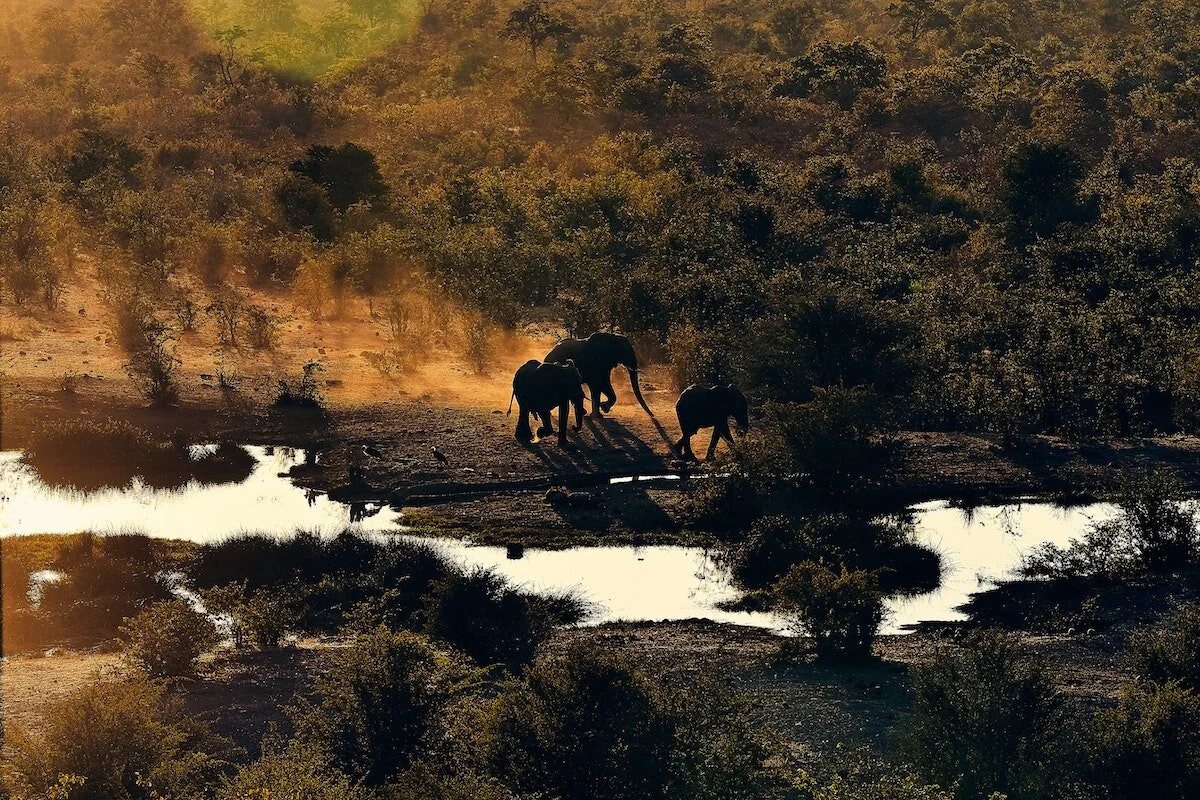
Global Stories

Australia, New Zealand, and Japan
This network has an increasing focus on Southeast Asia and serves a predominantly secular society, with less than 10 percent of the population identifying as Christians.
“Through this time, God
has faithfully taught us to
persevere in planting gospel seeds, leaving the growth
to him.”
― Jake Swadling
Faithfully Planting Seeds in Port Adelaide
Acts 29 pastor Jake Swadling never intended to plant a church. But the industrial community of Port Adelaide didn’t have any good reformed ones.
So Jake planted Anchor Church Port Adelaide just over three years ago. “Through this time,” wrote Jake, “God has faithfully taught us to persevere in planting gospel seeds, leaving the growth to him.”
Resting in the Lord’s faithfulness has led to good fruit. Anchor Church meets in a large warehouse and runs a second-hand shop there. “As a low-cost provider of clothes,” wrote Jake, “we were able to keep the shop open when everything else was shut down for COVID-19. We became a place where people came when they were scared and alone.” The church now has a high level of trust in the community—in fact, they’re bigger than before the COVID shutdown. People who had never come to church before are wanting to join and be baptized!
“As we rest in God’s faithfulness, he strengthens us to persevere,” Jake wrote.

Canada
Canadian church planters are doing truly pioneering work. From the far western wilderness of Yukon Territory to Newfoundland's eastern edge, they are reaching First Nations and secular communities, sophisticated cities, and isolated villages.
“Nobody even knows that there’s this city of a quarter of a million people and not even 2,000 evangelical Christians.”
―Stephen Bray
Canada’s Forgotten Unreached
Perched on the edge of the vast Atlantic Ocean, the city of St. John's, Newfoundland, is over 500 years old. Acts 29 pastor, Steve Bray, calls it a province of whales, icebergs, and fishing. Today, the oil and gas industry brings new prosperity to the province and people can make a lot of money quickly. But isolation, big-paying jobs, and idleness is a dangerous combination.
In this troubled society, there's almost no evangelical witness. Steve Bray says that the western-heritage people of Newfoundland are the forgotten unreached. Almost every evangelical church-planting effort led by outsiders has failed.
Calvary Baptist believes the answer is planting lots of healthy local churches. Through links with Acts 29's Church in Hard Places pastors and 20schemes founder, Mez McConnell, Steve Bray developed a new vision for evangelism. Calvary Baptist wants to see many local neighborhood churches planted all around St. John's and beyond.
"Please pray," Steve said, "for gospel communities of light to grow throughout this land, with believers who are 'all in' spreading Jesus's message of hope."

Emerging Regions
The Emerging Regions network encompasses areas that are historically more difficult for missionaries to access. Churches here face diverse challenges and pressures and often must be unnamed for the safety of those involved. But by God’s grace, this network is rapidly growing.
"We want the persecution
to end. But the gospel and witness in persecution is
being used by God."
―Marcel Yanogo
The Advancing Church in Burkina Faso
Nestled between the sandy landscapes of the Sahara Desert and the deep forests of West Africa, the people of Burkina Faso experienced great devastation in 2020. They've been one of the hardest-hit countries in Africa by the coronavirus. Violence from extremist groups has displaced over a million people. Children are unable to attend school safely, and famine and poverty abound. Against this backdrop of uncertainty, sickness, and violence, the gospel of Jesus Christ advances.
Acts 29 church planter, Marcel Yanogo, pastors Temple Philadelphie in Ouagadougou, Burkina Faso. Marcel also leads a Bible school (Verse by Verse) in northern Burkina, equipping over 100 church planters for ministry.
Despite constant persecution in the northern parts of the country, Burkina Faso believers are growing in their understanding of God's Word. And as they apply and proclaim it, the Holy Spirit is cultivating bold believers. Marcel says, "We want the persecution to end. But the gospel and witness in persecution is being used by God."

Europe
Many regions of Europe are less than one percent evangelical. This diverse network faces rapid urbanization and problems (with opportunities) related to its rural areas. In 2020, Europe was the first of our Acts 29 networks to be hard-hit by COVID-19.
“We don’t have to wonder; we know. Everything for us, in Christ, is OK.”
―Jonathan Gilmore
Will Everything Be OK in Italy?
Jonathan Gilmore pastors an Acts 29 church in Palermo. In March 2020, he watched as hospitals reached their breaking point. Infections raged, the stringent lockdown devastated the economy, and global news outlets featured coffins piling up and people dying alone. Jonathan Gilmore noted that the disaster was not merely economic. “For some,” he wrote, “their very survival is uncertain (migrants with no daily income, savings, or food).” With the second oldest population in the world, the coronavirus quickly overwhelmed healthcare capacity. Nothing was “OK” in Italy.
And yet believers there held on to gospel hope and watched God at work. Jonathan shared stories of gospel renewal—a neighbor recognizing his spiritual need, a young couple growing in faith, a university student exploring Christianity, people responding to online messages. “In this time of great need,” Jonathan wrote, “many are rethinking their priorities and spiritual identities.”
Will everything be OK? “We don’t have to wonder; we know,” Jonathan answered. “Everything for us, in Christ, is OK.”

Latin America
This network spans from Mexico to Brazil, where over 600 million people speak five different languages in 35 countries.
“Day laborers struggle even without a quarantine. When they’re not able to work, they don’t have a reserve.”
―Eric Papp
Acts 29 Churches Display the Gospel in Brazil
As the COVID-19 pandemic began to devastate lives worldwide, Acts 29 members and donors gave over $80,000—in less than four weeks—to support Acts 29 church planters and apprentices. One country that received funds was Brazil. Acts 29 churches in two locations there shared how the support helped them tangibly demonstrate God’s love during this crisis.
Rio de Janeiro is a city of nearly seven million people with gaping inequalities in health care and education. “Day laborers struggle even without a quarantine,” said Eric Papp (a member of Acts 29 church, Igreja do Redentor). “When they’re not able to work, they don’t have a reserve.” Facilitated by the Relief Fund, the church demonstrated God’s love by providing food packs to their neighbors.
São Luís is the peninsular capital city of the state of Maranhão. COVID-19 affected ministry here and left Acts 29 pastor, Dilvan Oliveira, worried about the church’s finances. When support arrived, Dilvan and his church were able to pay their bills and purchase food for the needy community where they intend to plant.

Southern Africa
The countries that make up this network (Namibia, Zambia, Zimbabwe, Botswana, Malawi, Mozambique, South Africa, Lesotho, and Swaziland) have a combined population of nearly 300 million people.
“This situation has brought many in Zimbabwe to a realisation of just how fragile they are. Many people are more receptive to the gospel than they previously were.”
―Jono Tudhope
Hope for Zimbabwe
Zimbabwe is in crisis. Corruption has ravaged the economy since the early 2000s. This, coupled with Zimbabwe's contested elections, has negatively affected democracy and the rule of law. State-sponsored abductions and torture threaten supposed enemies. The economy is a disaster. Public hospitals are closed and private hospitals charge exorbitant prices. It’s a scary time to get sick, especially in light of the COVID-19 pandemic.
All of this greatly affects evangelism. Spending time together is a luxury—every earning minute counts. The average income is less than $40 U.S. per month, so people can’t give and churches struggle to function. Our Acts 29 church plant in Harare has been delayed because the sending church cannot support it.
But this terrible situation has shown many people just how fragile they are. Many are more receptive to the gospel, and ten souls have received Christ since lockdown in 2020. Believers are continuing to grow in the knowledge of the Lord. Jesus is on his throne—there is hope for Zimbabwe!

USA
The Acts 29 US Network is composed of five distinct regions: West, Midwest, South Central, Southeast, and North Atlantic. From the forested tip of Maine to the beaches of southern California, Acts 29 US is a vast landscape of radically diverse cultures and contexts.
“It’s through the preaching
and practical loving of his church that the light of Christ pushes into the world’s darkness—in the good times and in the worst of times.”
―Drew Cunningham
Wildfires, Hospitality, and a Local Church
Lightning strikes sparked hundreds of wildfires across California and Oregon in the summer of 2020, leading to one of the worst fire seasons in US history. One of the many Acts 29 churches to be impacted by this crisis, Santa Cruz Baptist Church, is located just south of what was the third-largest fire raging in California in August. This church jumped into action to serve their community with the tangible love of Jesus. They gathered food, prepared comfortable beds, and even constructed showers for evacuees. Despite the necessity of face masks, photos reveal smiling eyes offering welcome and friendship. As these believers served their neighbors in word and deed, they displayed a picture of the welcoming kindness they’ve received from Jesus.
This is why Acts 29 loves church planting. It’s through the preaching and practical loving of his church that the light of Christ pushes into the world’s darkness—in the good times and in the worst of times.

Church in Hard Places
Acts 29 is passionate about seeing the gospel of Jesus proclaimed all across the globe, particularly in areas of poverty and isolation where ministry is uniquely difficult.
We prioritize training and supporting indigenous church leaders, and develop resources to assess and train rural church planters everywhere. Whether in rural Africa, the favelas of Brazil, isolated Middle Eastern villages, or inner-city Los Angeles, Church in Hard Places apprentices and planters are part of every network in the Acts 29 family.
“God has given us the opportunity to do good. We get to go to starving families and help them out with food. We’re getting to know more people in this time of isolation than we ever did before.”
― Ronald Kogo
Pandemic Challenges of Kenyan Church Planters
One challenge Kenyan church planters faced in 2020 was ministering during a pandemic. Pre-pandemic life was already difficult in Kenya, but COVID-19 magnified this problem, and school cancellations have removed a safety net many families relied on.
With schools closed, hunger, disease, and malnutrition abounded. The illegal practice of child marriages increased as a dowry can be used to buy desperately needed food. Economic hardships led to increased domestic abuse, some children were forced into grueling manual labor, and gangs recruited students with nothing to do. Underage pregnancies increased. Young girls at home all day have been preyed on by men content to hurt them for their own pleasure.
Ronald Kogo (Church in Hard Places apprentice and East Africa cohort leader) believes God has gifted the church with opportunities to evangelize a fearful society. He says, “God has given us the opportunity to do good. We get to go to starving families and help them out with food. We’re getting to know more people in this time of isolation than we ever did before.”
As our enemy propagates fear, believers proclaim Christ. The mission continues. God’s kingdom advances.








